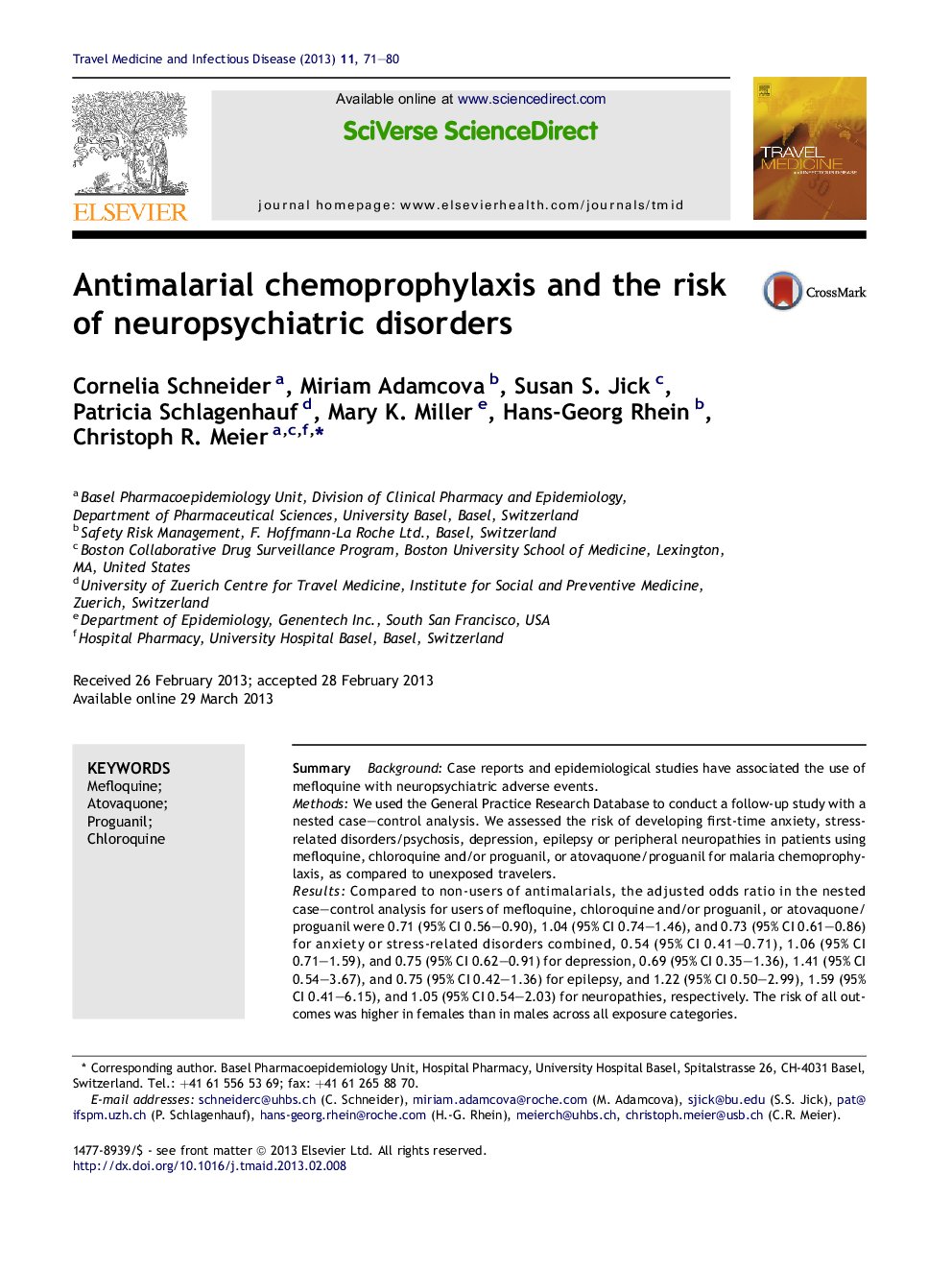| Article ID | Journal | Published Year | Pages | File Type |
|---|---|---|---|---|
| 3392922 | Travel Medicine and Infectious Disease | 2013 | 10 Pages |
SummaryBackgroundCase reports and epidemiological studies have associated the use of mefloquine with neuropsychiatric adverse events.MethodsWe used the General Practice Research Database to conduct a follow-up study with a nested case–control analysis. We assessed the risk of developing first-time anxiety, stress-related disorders/psychosis, depression, epilepsy or peripheral neuropathies in patients using mefloquine, chloroquine and/or proguanil, or atovaquone/proguanil for malaria chemoprophylaxis, as compared to unexposed travelers.ResultsCompared to non-users of antimalarials, the adjusted odds ratio in the nested case–control analysis for users of mefloquine, chloroquine and/or proguanil, or atovaquone/proguanil were 0.71 (95% CI 0.56–0.90), 1.04 (95% CI 0.74–1.46), and 0.73 (95% CI 0.61–0.86) for anxiety or stress-related disorders combined, 0.54 (95% CI 0.41–0.71), 1.06 (95% CI 0.71–1.59), and 0.75 (95% CI 0.62–0.91) for depression, 0.69 (95% CI 0.35–1.36), 1.41 (95% CI 0.54–3.67), and 0.75 (95% CI 0.42–1.36) for epilepsy, and 1.22 (95% CI 0.50–2.99), 1.59 (95% CI 0.41–6.15), and 1.05 (95% CI 0.54–2.03) for neuropathies, respectively. The risk of all outcomes was higher in females than in males across all exposure categories.ConclusionsThe risk of neuropsychiatric disorders was similar for users and for non-users of anti-malarial chemoprophylaxis, with evidence for elevated risks in some subgroups.
